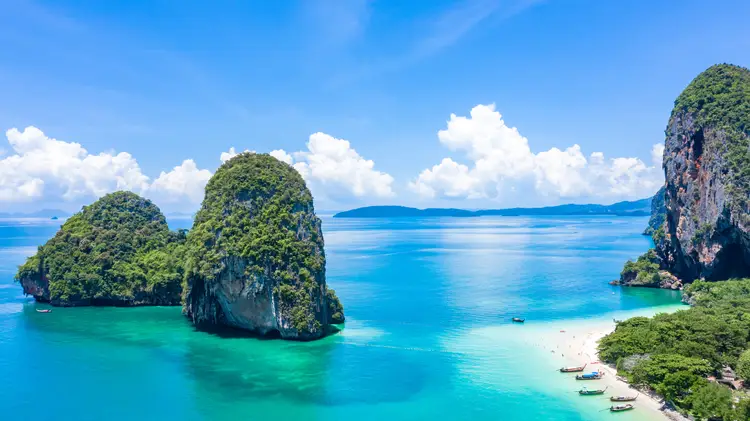What Is The Level Of Health Care In The Philippines?
The Philippines private health care sector is booming, fueling a fast-growing medical tourism industry.
There are all kinds of hospitals in the Philippines. Those that are considered “first rate” here might be considered average in the United States. Those that are charity hospitals here would be a foreigner’s nightmare.
Cebu has several good hospitals. Chong Hua Hospital is an “Accredited Institute of the Joint Commission International.” Cebu Doctors’ University Hospital is also an excellent facility. Perpetual Succour Hospital is run by an order of Sisters. These three hospitals have up-to-date modern facilities and technology and offer excellent medical care.
There are however a couple of important points a foreigner needs to know about the difference between hospitals in the Philippines and Western countries.
The actual medical care provided by doctors and nurses is similar but the day-to-day care of the patient is left to family members.
It is expected that patients will have family members stay with them throughout their whole hospital stay. It is the family’s responsibility to change the bed linens, get water, and even to help the patient bathe, get to the bathroom, and eat.
The second point is that a hospital can refuse you care if you do not have the cash to pay for it. And be warned, you will often need to pay in advance for treatment.
There is a charge for your room, for your doctor, and you pay for all medications as you go. The hospital does not keep medications in a centralized pharmacy. Your doctor will write prescriptions for what you need, and a family member is expected to go to a local pharmacy to get these for you. This even includes IV tubes and needles.
Public facilities in this country likely would not be of a standard you’d find acceptable. Medical and dental care are good, with new hospitals under construction and international-standard health care is available in the major cities.
The Philippine government has a national health service available to all citizens. This is known as PhilHealth and most of the population are enrolled.
If you are looking for surgery or specialist treatment, it can be a good idea to speak with other expats or search online forums for reviews. The standard of healthcare in the Philippines varies widely and so finding someone with good references is essential.
Expat Insurance
You will need health insurance if you are planning to relocate to the Philippines. Make sure you check your policy thoroughly for any exclusions. Some health insurance providers will not cover expats over the age of 65. One option for over 65’s is to buy 6 month health insurance which you can update until you turn 70.
PhilHealth is available to expats. You will need to go to a health insurance office and complete a registration form. Once you have been accepted you will get an ID car and number in the PhilHealth system. You will need to pay a monthly contribution.
The PhilHealth ID card can be used as ID in for everyday life in the Philippines.
Things To Look Out For
Some hospitals have been known to charge expats more for health care. This ‘skin tax’ because expats are perceived as being more wealthy and able to afford the extra charges.
Look out for hospitals adding on unnecessary items and treatments as a way of generating funds.
Don’t book your medical insurance through a third party as they have been known to scam or misdirect expats.
Alternative Medicine
The Philippines shines when it comes to alternative health care. Medical doctors here are trained in “Western Medicine,” but they are also very open to using alternative healing methods, especially herbal medicines.
Most of them grew up with mothers and grandmothers who knew which greens to steep to cure loose bowls, a cough, or to take down a fever. I have had one medical student lament to me that more and more Filipinos simply want their doctors to write a prescription for a pill. They think of it as more advanced; more modern.
Dental Tourism In The Philippines
Dental tourism is a thriving business in the Philippines. As a general rule you would probably pay 60-75% less than in the U.S. Most of the Philippines dental tourism industry is based in islands of Luzon, Visayas, and Mindanao.
Health Risks
There are some health risks associated with moving to the Philippines. Dengue fever and malaria are risks and you should take care to minimize your exposure to mosquitos. Make sure you have a mosquito net to protect you while you sleep and invest in a high quality insect repellant.
Cholera and typhoid are fairly common in parts of the Philippines. Avoid drinking the tap water, this includes ice in drinks. There are rabid animals in the Philippines, so make sure you are up to date with all vaccinations.
Getting Prescription Drugs
The Philippines is likely to have whatever drugs you need although the brand names may well be different. Get your prescription written out using the Latin names before you leave to avoid any confusion. You will also need your prescription to obtain certain drugs. There are major pharmacy chains such you can use for assistance while you are getting used to the country.
Bring some extra drugs with you as you may not be able to find everything you need immediately.
General Health Tips
It is a hot and humid here, take precautions against sunstroke and heatstroke. If you are a long way from the nearest medical center then take extra precautions.
- Use sunblock when outdoors even if it is cloudy
- Carry an umbrella, if necessary, to help block sun rays
- Take care if you venture into the jungle as there are an array of poisonous animals
- Be alert to any red flags on the beach as this could mean, sharks, jellyfish or even deadly poisonous octopus








 . '
. '
 . '
. '
 . '
. '
 . '
. '
 . '
. '








